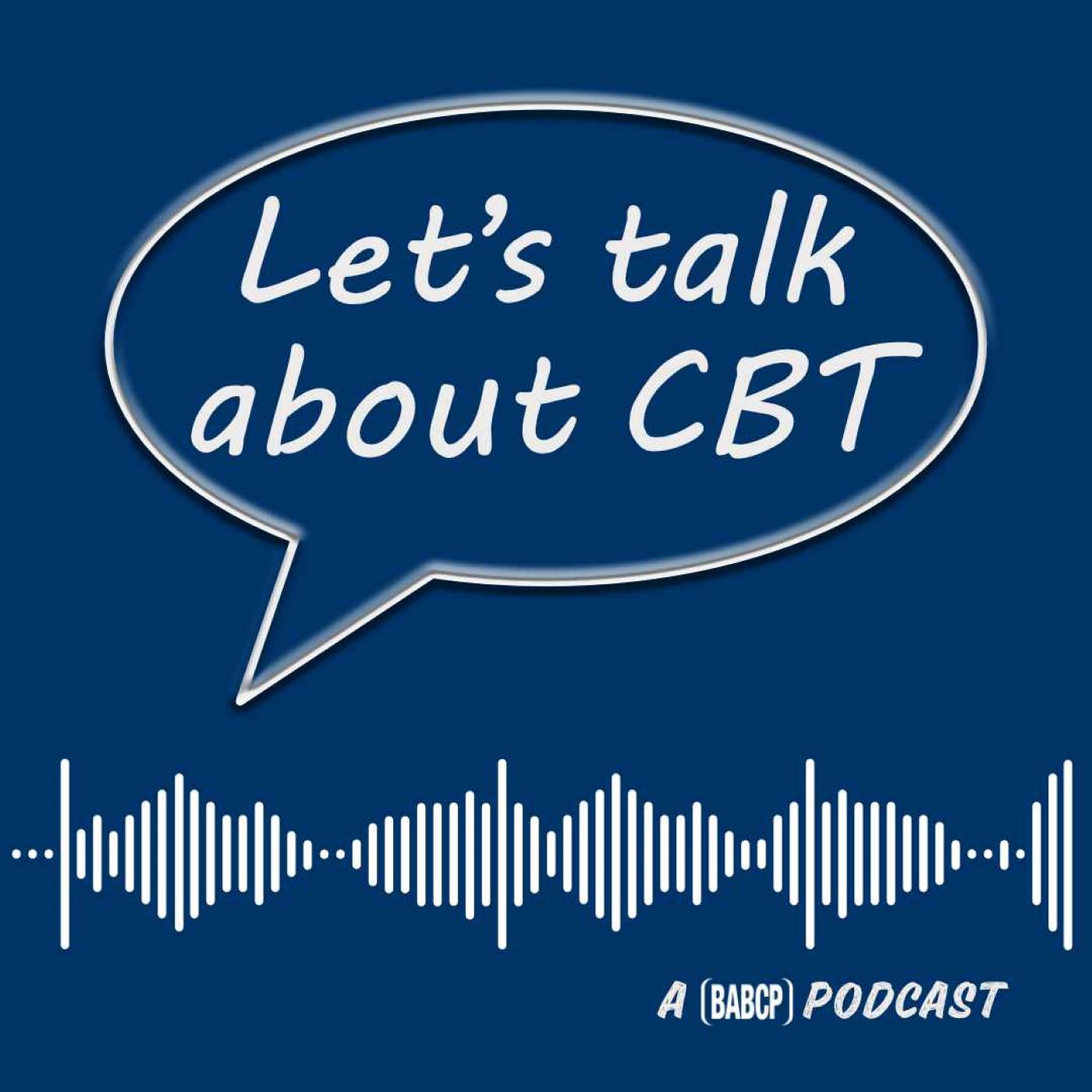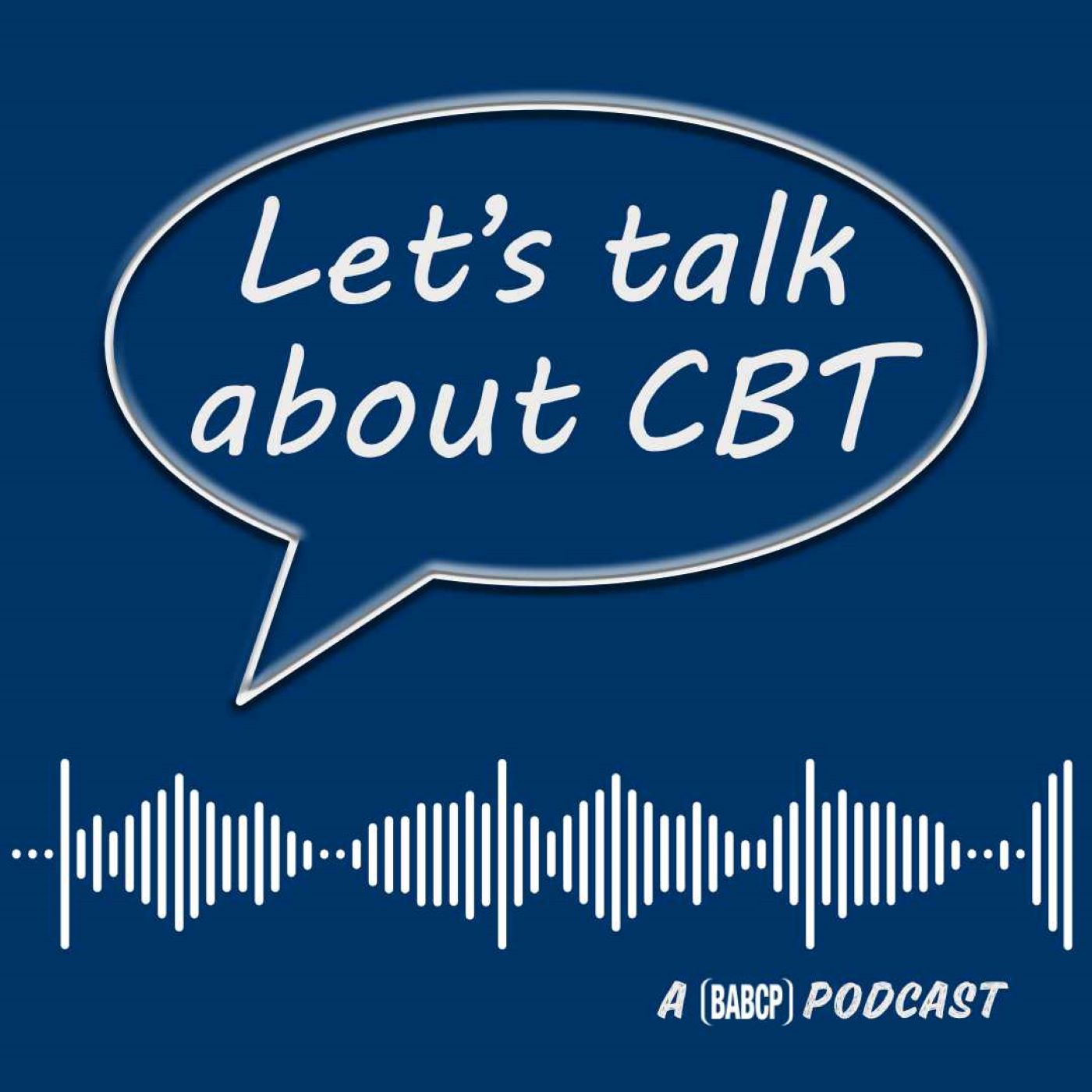Let's talk about…how CBT can help manage living with long term health conditions and trauma
Description
In this episode, Helen talks with Lizzie, a beauty content creator and disability advocate, and Bex, a CBT therapist, about Lizzie’s journey navigating living with long term health conditions, trauma and the transformative impact of Cognitive Behavioural Therapy (CBT).
Lizzie shares her experiences living with Crohn's disease, POTS (Postural Orthostatic Tachycardia Syndrome), and hypermobility spectrum disorder, alongside the emotional challenges of managing these conditions. She discusses her initial scepticism about therapy and how CBT helped her address anxiety, PTSD, and prioritising her own well-being.
Bex offers insights into the therapeutic process, addressing common misconceptions about CBT, and highlights the importance of building trust and tailoring therapy to individual needs. Together, they discuss the interaction between physical and mental health and strategies for balancing driven lifestyles with well-being.
Useful links:
Explore Lizzie’s content on Instagram and TikTok (@slaywithsparkle).
Listen to our sister podcasts: Let’s Talk About CBT - Practice Matters and Let’s Talk About CBT - Research Matters: https://babcp.com/Podcasts
Find us on Instagram: https://www.instagram.com/babcppodcasts/
Learn more about CBT www.babcp.com
Credits:
Music is Autmn Coffee by Bosnow from Uppbeat
Music from #Uppbeat (free for Creators!): https://uppbeat.io/t/bosnow/autumn-coffee
License code: 3F32NRBYH67P5MIF
This episode was edited by Steph Curnow
Transcript:
Helen: Hello, and welcome to Let's Talk About CBT, the podcast where we talk about cognitive and behavioural psychotherapies, what they are, what they can do, and what they can't. I'm Helen Macdonald, your host. I'm the Senior Clinical Advisor for the British Association for Behavioural and Cognitive Psychotherapies
What we've got for you today is a conversation with Lizzie and Bex. Lizzie's going to talk about her experiences of having CBT and living with a number of conditions that she'll tell us more about in the episode. We're going to talk to Bex, who is a CBT therapist, and she's going to talk with us about working with Lizzie as well.
Welcome to you both. Lizzie, would you like to introduce yourself?
Lizzie: Hello! Thank you so much for having me. So as Helen's just said, my name is Lizzie. I am also a beauty content creator known as @slaywithsparkle on Instagram and TikTok and a little bit of YouTube and I'm also a speaker that talks about disability awareness. And I try and raise awareness about the health conditions I've got and general sort of disability awareness and activism about that.
Helen: Thank you Lizzie, and welcome. Thank you for coming to talk to us today. And Bex, would you like to tell our listeners about you?
Bex: Hi. Yes, I'm Bex. I'm a CBT therapist and worked with Lizzie a little time ago, when I worked in a physical health service for IAPT at the time. And I currently work more with trauma in Sheffield both in the NHS and privately.
Helen Thank you, Bex. And maybe I should just say, when you said IAPT, we're now talking about NHS Talking Therapies.
Bex: That's right. Yes. Thank you for providing the update.
Helen: So Lizzie, can I ask you a bit about what was happening for you? What was going on that meant you ended up having CBT?
Lizzie: So for me, I really had quite a negative opinion about any sort of talking therapy and had very much been brought up with the idea that if you have some sort of mental health problem, you should be able to solve it yourself. And if you just think positively and carry on, then everything should be fine.
Because of my health conditions, so I will just mention just briefly so people are aware what my health conditions are just for context. So I have, Crohn's disease, which I was diagnosed with when I was 21 and then later about 9- 10 years later, I was diagnosed with hypermobile spectrum disorder and also POTS, which is a condition that affects my blood pressure and heart rate. And when I had a first flare of Crohn's disease. I'd obviously had it a long time without realising, but when I first flared with Crohn's disease, I really struggled with the concept of having a physical health condition that I couldn't push through. So with my Crohn's, I ended up ignoring a lot of the doctor's advice because I had this idea that I should be able to cure myself. I really pushed myself to look at alternative therapies. And then, because of that, I ended up ignoring what the doctor said and becoming a lot more ill. Unfortunately, because of a combination of the Crohn's having been misdiagnosed for a long time as IBS, and then because of all of those sorts of ideas about that I should be able to cure myself, my Crohn's did get so bad that I ended up having to go to hospital and have emergency surgery on my bowel. Years later, so about two or three years later, I started having real panic attacks, which I'd never had before. I was anxious all the time and I couldn't sleep. I would sometimes wake up in the middle of the night at like 4am and get the urge to clean the entire house and was sometimes just up in the middle of the night pacing up and down. And my partner at the time said to me, you know, this is not normal. Something's going on. You really need to think about getting some help for this. And I was devastated at that concept because I obviously had this idea that I should be able to fix myself. And so that was the sort of wakeup call that I had to go and get some help and I applied to IAPT at the time and had my first round of CBT. Since then I've had three rounds of CBT and a course of EMDR as well but yeah, that was the first thing that sort of led me to CBT.
Helen: Thank you, Lizzie. And it just strikes me what a difficult combination of things you experienced that not only were you having a number of quite complicated and long-lasting physical symptoms, also the experiences you'd had when you were younger meant that it was really difficult to seek help for the panic attacks and the anxiety and so on. Can I ask you just to say, in case anybody's not familiar with the terms, can you just say a little bit about what the symptoms of Crohn's disease are?
Lizzie: Yes, absolutely. So Crohn's disease is different for everybody. For me, I really struggled with pain and one of the biggest symptoms that I had was pain. I also struggle with diarrhoea. It's not the most glamorous disease. It's quite embarrassing sometimes. Some people have a lot of nausea and vomiting. For me, that's not been as much of a problem. To me, the biggest problem has been pain. And it got so bad that when I was actually in my final year of university, I'd been told by the doctors repeatedly that it was IBS, and it was just stress related IBS and I just needed to make sure I watch what I eat, tried to up my fibre, which made me a lot more ill. And eventually it got to the point where I literally couldn't even drink water because my oesophagus was closing up. I was in absolute agony and I finally went back to the doctor and I was like, really, honestly, there's something seriously wrong here and then they finally sent me for the right tests and they found the Crohn's disease. The other big symptom with Crohn's disease as well is fatigue. So, most people actually say that fatigue is the most debilitating symptom of Crohn's disease. And for me, I mean, at the moment I am in a flare and I am sleeping 14 hours. And if I don't get that 14 hours, I cannot function and I need a full day in bed to recover.
Helen: And again, you've said about some of the symptoms being a little bit similar to IBS or Irritable Bowel Syndrome but having a really far reaching impact on every area of your life, really. You also mentioned that you had POTS, which can affect your blood pressure. And if I have this right, it's Postural Orthostatic Tachycardia Syndrome?
Lizzie: Yeah, so it affects your, for me, it affects my blood pressure. Not everybody has problems with their blood pressure all the time. But what happens is your heart isn't getting the right signals. And so you end up having a really high heart rate when you stood up and then that can lead to you passing out. It also leads to symptoms again, like nausea, fatigue and for me, it just feels horrible. Like, it's just that feeling of like sometimes the world's sort of closing in on you and when you're about to go you just feel really sick, really like something's pulling you to the floor. It's


















